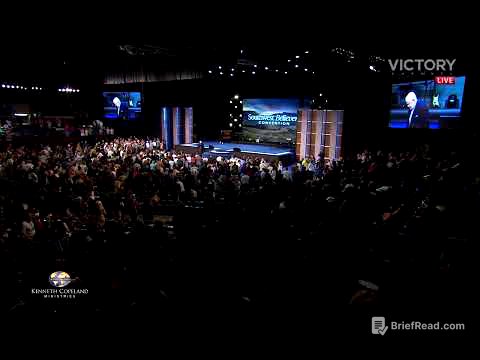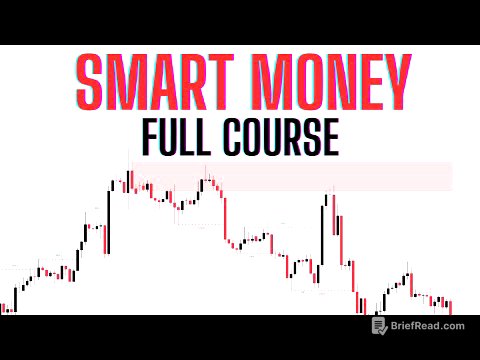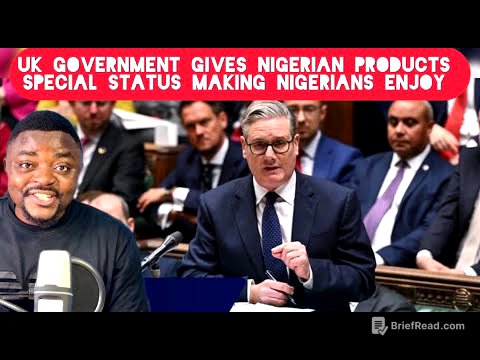TLDR;
This video explores the rise and impact of neoliberalism as an economic doctrine, tracing its origins, key principles, and consequences across the globe. It examines how neoliberalism, with its emphasis on free markets, deregulation, and privatization, has influenced economic policies and social structures, leading to both intended and unintended outcomes. The video also discusses the historical context in which neoliberalism gained prominence, including its relationship with democracy, social justice, and the role of the state.
- Neoliberalism emerged as a reaction to social and public interest economics, advocating for minimal state intervention and free markets.
- Key figures like Milton Friedman and Friedrich Hayek shaped neoliberal thought, influencing policies in countries like Chile under Pinochet, the United Kingdom under Thatcher, and the United States under Reagan.
- The implementation of neoliberal policies has led to increased privatization, deregulation, and a shift in the role of the state, often resulting in social and economic consequences such as increased inequality and precarious employment.
Introduction to Neoliberalism [1:39]
The video introduces neoliberalism as an economic theory that emerged in the 20th century, particularly gaining prominence in the last two decades. It posits that economic elites in Western societies saw their power expand as states and democracies experienced a reduction in sovereignty. The system, however, is presented as inherently flawed, prone to self-destruction due to its insatiable nature.
The Financial Crisis of 2007 and Neoliberalism [2:32]
The 2007 financial crisis is discussed as a critical moment that exposed the vulnerabilities of neoliberalism. Investment banks deemed "too big to fail" were bailed out with state funds in both the United States and Europe, highlighting the contradictions of a system that advocates for minimal state intervention. Despite the crisis, those responsible largely avoided accountability, illustrating the limitations of justice when dealing with powerful economic forces.
The Ideological Foundations of Neoliberalism [5:01]
Neoliberalism is described as a political theory rooted in the Industrial Revolution and capitalist society. It serves as a system for the capitalist bourgeois class to legitimize its social structure and dynamics. The core idea is traced back to Adam Smith's "invisible hand," suggesting that individual selfishness leads to collective well-being. This philosophy aligns with Darwinism, favoring the survival of the strongest, which in a class-structured society, equates to the richest.
Neoliberalism and Democracy [7:21]
Democracy is identified as a major obstacle to the full implementation of neoliberalism. The Trilateral Commission, in a 1975 publication titled "The Crisis of Democracy," highlighted the challenges of reconciling neoliberalism with democratic principles. Samuel Huntington, one of the authors, argued that the United States suffered from an "excess of democracy" and needed greater moderation, suggesting that authority should sometimes supersede the democratic process.
Failures of Neoliberalism [9:25]
The video discusses the failures of liberalism in the 1930s, marked by significant unemployment and the system's inability to recover spontaneously. Similarly, neoliberalism faces a crisis following the 2008 recession, with market forces proving insufficient for resolution. This challenges the notion of neoliberalism as a scientific and irrefutable doctrine, despite its dedicated proponents.
Adam Smith and the Birth of Modern Economics [10:39]
Adam Smith's "The Wealth of Nations," published in 1776, is recognized as the symbolic birth of modern economics. However, Smith's ideas have often been misinterpreted. He advocated for free state education and did not believe the market alone could meet individual needs. The liberal principles of the French-American constitution and Smith's ideas, driven by the Industrial Revolution, led to modern capitalism, but also created a new class of oppressed people.
Marx and the Critique of Capitalism [11:56]
The 19th century saw high levels of labor exploitation, prompting Karl Marx to analyze and critique capitalist society. Marx theorized that workers, if organized, could overcome capitalism, a system prone to exploitation and cyclical crises destined to implode. Simultaneously, economists developed the theory of general equilibrium, later known as neoclassicism, which posits that the market self-regulates and generates well-being without state interference.
Neoclassical Economics and the Interests of Industrial Bankers [13:26]
The video asserts that neoclassical economics perfectly served the interests of industrial bankers. Governments were essentially committees for their business, leading to economic policies that promoted rapid capitalist expansion and global trade. This period also saw significant social upheaval, including wars and revolutions, as well as the rise of Marxism-Leninism in Russia, which challenged capitalist principles.
The Great Depression and the Rise of the Welfare State [15:18]
The unchecked financial markets of the United States led to the Wall Street crash of 1929, marking a collapse of capitalism. Neoliberalism emerged in reaction to the social economy advocated by thinkers like John Maynard Keynes and Michael Kalecki, who promoted the idea of the Welfare State. These thinkers believed that the state should use its currency for the public interest, guaranteeing rights and intervening in the economy to ensure full employment.
The New Deal and Keynesian Economics [18:52]
In 1933, the United States implemented the New Deal based on Keynesian principles to combat the Great Depression. Key measures included the Glass-Steagall Act, which separated commercial and investment banks, and the creation of numerous state programs for job creation. These initiatives led to the construction of public works, reduced unemployment, and improved social conditions, fundamentally changing the state's role in the economy.
Bretton Woods and the Post-War Economic Order [20:47]
The Bretton Woods conference in 1944 established the post-World War II economic order. While Keynes proposed a model of solidarity between states, Harry Dexter White's proposal was adopted, leading to the creation of the International Monetary Fund and the World Bank. These organizations, initially intended to provide financial assistance, later became tools in the hands of the elite.
Post-War Europe and the Rise of Social Rights [21:52]
Post-war Europe, devastated by conflict, saw a rise in social awareness and a push for social rights. The Beveridge Report in the United Kingdom and new constitutions in France, Italy, and Germany reflected a rejection of liberalism and an embrace of Keynesian economics. These changes aimed to redistribute power and create a multi-class society where the state mediated between different economic interests.
The Shift Towards Neoliberalism [24:39]
Despite the post-war emphasis on social rights and state intervention, the idea of a return to neoliberal principles remained. The Austrian school of economics, particularly the work of Friedrich Hayek and Milton Friedman, provided cultural references for this shift. The perceived weakening of the Soviet bloc created an opportunity to reclaim lost ground and implement neoliberal policies.
The Dogmas of Neoliberalism [30:29]
The video outlines the core tenets of neoliberalism, including shrinking the state, reducing its economic power, and promoting free markets. Neoliberalism seeks to diminish the state's role in the social scene, advocating for privatization and deregulation. Figures like Milton Friedman argued that free enterprise and free markets are the most effective means of eliminating poverty.
Milton Friedman and the Spread of Neoliberal Ideas [34:30]
Milton Friedman played a key role in popularizing neoliberal ideas through conferences, debates, and media appearances. His vision emphasized individual responsibility, competition, and the belief that wealth would "trickle down" from successful businesses. This perspective downplayed the importance of acquired rights, healthcare, education, and the role of trade unions.
The Role of the State in Neoliberalism [38:07]
Neoliberalism advocates for minimizing state intervention in the market, believing that markets are self-regulating. This view suggests that citizens should not decide on economic policies; instead, markets should dictate outcomes. However, the video argues that markets often create problems requiring state intervention, contradicting the neoliberal ideal.
Key Principles of Neoliberal Economics [40:22]
The video highlights key neoliberal principles, including the idea that central banks should not focus on job creation, governments should reduce public deficits, and the state should shrink its overall size. Privatization and divestment are seen as ways to free up resources for the private sector, which is believed to use them more efficiently. However, the video challenges this theory, citing the example of privatizations in Italy, which led to increased costs and profits for intermediaries.
Neoliberalism and Public Debt [43:10]
Neoliberalism promotes the idea that public debt should be entrusted to the markets and not subject to intervention by the treasury or central bank. It also emphasizes deflation and inflation control as permanent objectives. The video argues that neoliberals have created "dogmas of fear" around public debt and inflation to paralyze politics and public opinion, convincing people that the state should not spend money on social services.
Flexibility of Work Contracts and Job Insecurity [45:48]
The dominant neoliberal thesis is that flexible work contracts and job insecurity increase employment. However, empirical evidence does not support this claim. Even proponents of neoliberalism, such as the chief economist of the International Monetary Fund, have recognized that there is no clear relationship between job insecurity and increased employment.
The Political Motivations Behind Neoliberal Policies [47:37]
The video argues that neoliberal policies, such as subsidizing those out of work, are often driven by political rather than economic motivations. By excluding people from the workforce, they are also excluded from decision-making processes, leaving control in the hands of a few. Challenging these policies requires understanding their political aims, not just their economic consequences.
The Influence of Neoliberalism on Media and Academia [49:20]
Neoliberalism has become the dominant economic thought, influencing media, universities, and public discourse. Carl Brunner, a prominent figure in 20th-century neoliberalism, advocated for conquering universities and publishers to promote neoliberal ideas. This influence has shaped economic education and public perception, even after the 2008 financial crisis.
The Chicago Boys and the Spread of Neoliberalism in South America [50:53]
The video discusses how neoliberalism spread through the "Chicago Boys," economists trained at the University of Chicago under Milton Friedman. A US government program during the Cold War financed exchanges of economics students, allowing Friedman and his colleagues to indoctrinate economists who later influenced economic policies in their home countries. Chile under Augusto Pinochet became a key testing ground for these ideas.
Chile Under Allende and the Rise of Pinochet [51:57]
In 1971, Salvador Allende, leader of the left-wing coalition Unidad Popular, won the elections in Chile. His program included nationalization of raw materials, wage increases and worker participation in state-owned industries, which threatened American business interests and the Soviet Communist Party. A coup d'état, supported by the American government, led to Pinochet's rise to power.
The Implementation of Neoliberal Policies in Chile [56:40]
Pinochet, with the backing of the American government, implemented harsh neoliberal reforms in Chile. The "Chicago Boys" occupied key positions in the government, and the reforms, implementable only by a brutal dictatorship, returned Chile to American business interests. Despite the economic changes, Allende's ideas and actions left a lasting impact on history.
The Spread of Neoliberalism in the 1970s [59:17]
In the mid-1970s, democracies in the United States and Europe were becoming more participatory, with strong socialist and communist parties and active union struggles. To impose neoliberal policies, it was necessary to influence public opinion through universities, media, and think tanks. The oil crisis of the mid-1970s, which caused inflation, created an opportunity for neoliberal ideas to gain prominence.
Thatcher and Reagan: The Rise of Neoliberalism in the UK and US [1:01:30]
Friedrich von Hayek and Milton Friedman won the Nobel Prize for economics in 1974 and 1976, respectively, paving the way for neoliberal ideas to enter democratic governments. Margaret Thatcher won the elections in Great Britain in 1979, and Ronald Reagan followed suit in the United States in 1981. Both leaders implemented policies that dismantled social rights, leading to increased poverty and inequality.
Neoliberalism and Global Colonialism [1:05:43]
The Reagan government resumed colonialist policies, using debt traps and the International Monetary Fund to exploit developing nations. Thomas Sankara, the leader of Burkina Faso, resisted these policies, advocating for self-reliance and the consumption of locally produced goods. However, he was assassinated in 1987, and Burkina Faso was once again subjugated by neoliberal interests.
The Fall of the Soviet Union and the Triumph of Neoliberalism [1:10:35]
Deng Xiaoping, the new leader of the Chinese Communist Party, embraced neoliberal ideas. The reunification of Germany and the dissolution of the Soviet Union marked a turning point, with the Economist and the Washington Post urging Russia to follow the Chilean model of Pinochet. The privatization of the Soviet Union's industrial apparatus led to widespread poverty and a decline in life expectancy.
The Resistance to Neoliberalism in Europe [1:12:35]
By the end of the 20th century, neoliberalism had become dominant in many parts of the world. However, Europe, with its strong constitutions and social rights, resisted the complete takeover of neoliberal policies.









